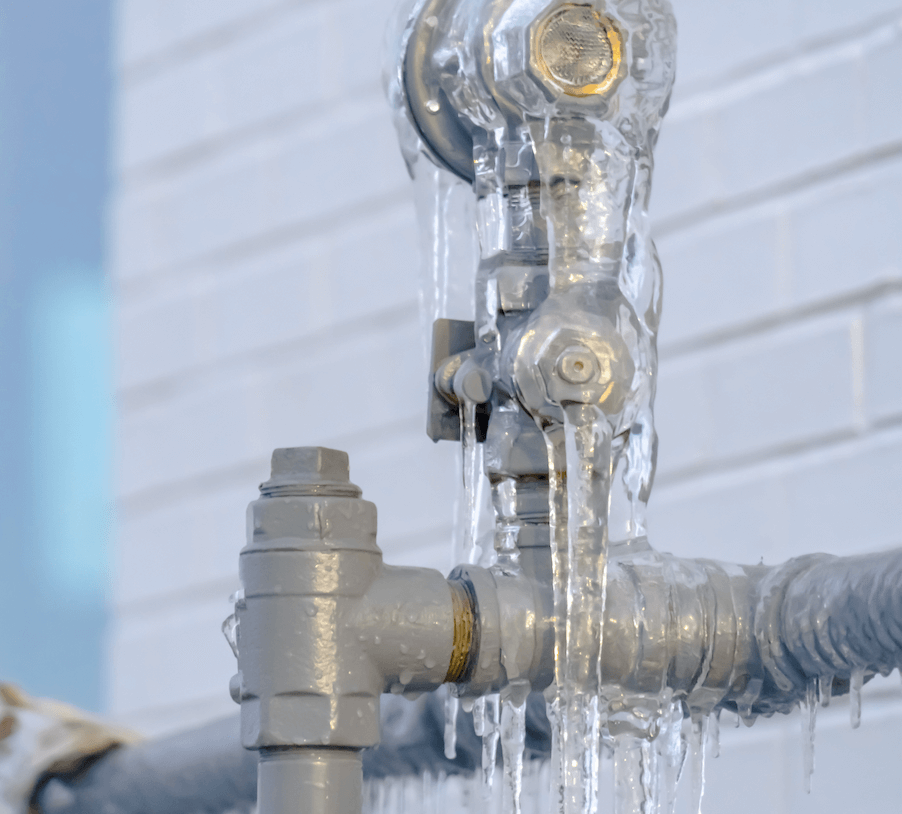Important Tips for Preventing Frozen Plumbing in Cold Weather Seasons
Important Tips for Preventing Frozen Plumbing in Cold Weather Seasons
Blog Article
Presented here down the page you can locate more very good ideas relating to Winter Plumbing Precautions: Preventing Frozen Pipes.

Cold weather can damage your plumbing, specifically by freezing pipes. Here's just how to prevent it from happening and what to do if it does.
Intro
As temperatures decrease, the threat of icy pipes boosts, possibly resulting in pricey repairs and water damage. Comprehending how to stop icy pipes is important for house owners in chilly climates.
Avoidance Tips
Shielding prone pipes
Wrap pipelines in insulation sleeves or utilize heat tape to shield them from freezing temperatures. Focus on pipelines in unheated or exterior locations of the home.
Heating strategies
Keep indoor areas properly warmed, especially locations with plumbing. Open closet doors to allow cozy air to circulate around pipes under sinks.
How to recognize icy pipelines
Seek decreased water flow from taps, uncommon smells or sounds from pipelines, and visible frost on exposed pipes.
Long-Term Solutions
Structural modifications
Think about rerouting pipelines far from outside wall surfaces or unheated locations. Include added insulation to attic rooms, cellars, and crawl spaces.
Updating insulation
Invest in premium insulation for pipelines, attic rooms, and wall surfaces. Proper insulation aids keep regular temperatures and lowers the danger of frozen pipes.
Protecting Outdoor Plumbing
Yard pipes and outside faucets
Disconnect and drain yard tubes before winter months. Set up frost-proof spigots or cover outside taps with insulated caps.
Comprehending Frozen Pipelines
What causes pipelines to freeze?
Pipes ice up when revealed to temperatures below 32 ° F (0 ° C) for prolonged durations. As water inside the pipelines ices up, it increases, putting pressure on the pipe walls and potentially triggering them to rupture.
Dangers and problems
Icy pipes can cause water disturbances, home damage, and expensive repair work. Burst pipelines can flooding homes and trigger substantial structural damage.
Indicators of Frozen Water Lines
Determining frozen pipelines early can avoid them from bursting.
What to Do If Your Pipelines Freeze
Immediate activities to take
If you think icy pipelines, keep taps open to relieve stress as the ice melts. Make use of a hairdryer or towels soaked in warm water to thaw pipelines gradually.
Final thought
Avoiding icy pipes calls for aggressive measures and fast reactions. By comprehending the causes, signs, and preventive measures, house owners can secure their plumbing during winter.
6 Proven Ways to Prevent Frozen Pipes and Protect Your Home
Disconnect and Drain Garden Hoses
Before winter arrives, start by disconnecting your garden hoses and draining any remaining water. Close the shut-off valves that supply outdoor hose bibs and leave the outdoor faucet open to allow any residual water to drain. For extra protection, consider using faucet covers throughout the colder months. It’s also important to drain water from any sprinkler supply lines following the manufacturer’s directions.
Insulate Exposed Pipes
Insulating your pipes is an effective way to prevent freezing. Pipe insulation is readily available at home improvement stores and is relatively inexpensive. Pay close attention to pipes in unheated areas such as the attic, basement, crawl spaces, or garage. Apply foam insulation generously to create a buffer against the cold. You can also wrap your pipes in heat tape or thermostat-controlled heat cables for added warmth.
Seal Air Leaks
Inspect your home for any cracks or openings that could let in cold air. Seal any holes around the piping in interior or exterior walls, as well as the sill plates where your home rests on its foundation. Additionally, make sure to keep your garage door closed unless you’re entering or exiting. Leaving it open creates a significant air leak that can lead to frozen pipes.
Allow Warm Air Circulation
During cold snaps, it’s essential to allow warm air to circulate evenly throughout your home. Leave interior doors ajar to promote better airflow. Open kitchen and bathroom cabinets to help distribute heat consistently around the rooms. If you have small children or pets, be sure to remove any household chemicals or potentially harmful cleaners from open cabinets for safety.
Let Faucets Drip
A small trickle of water can make a big difference in preventing ice formation inside your pipes. When temperatures drop significantly, start a drip of water from all faucets served by exposed pipes. This continuous flow helps prevent the water from freezing. Additionally, running a few faucets slightly can relieve pressure inside the pipes, reducing the chances of a rupture if the water inside does freeze.
https://choateshvac.com/6-proven-ways-to-prevent-frozen-pipes-and-protect-your-home/

I discovered that article about Winter Plumbing Precautions: Preventing Frozen Pipes when doing a search on the search engines. Those who enjoyed reading our article plz consider to share it. Thanks for your time. Kindly come visit our website back soon.
Call Today Report this page